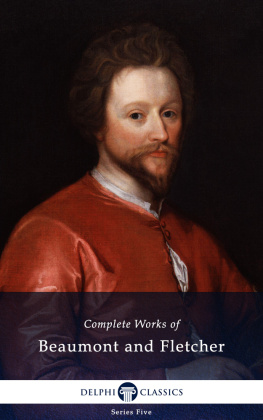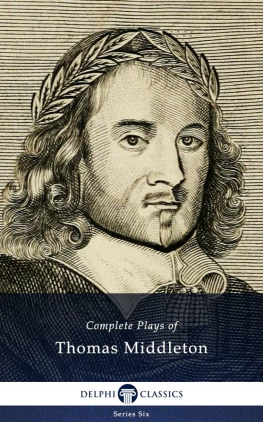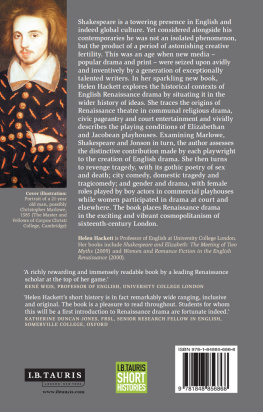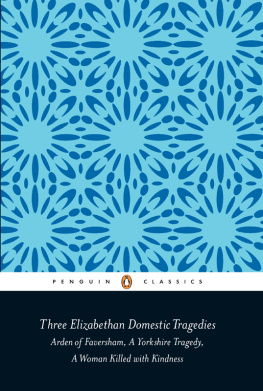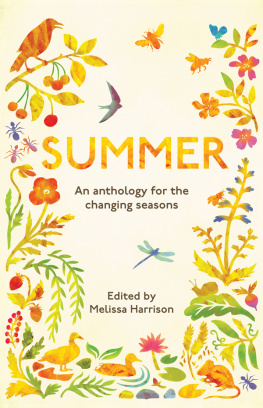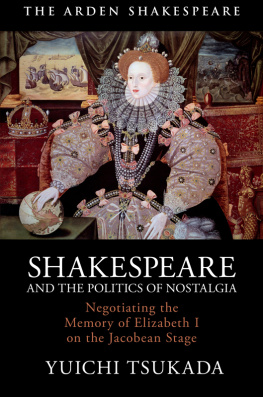ENGLANDS OTHER
COUNTRYMEN
Black Tudor Society
ONYEKA NUBIA
Englands Other Countrymen: Black Tudor Society was first published in 2019 by Zed Books Ltd, The Foundry, 17 Oval Way, London SE11 5RR, UK.
www.zedbooks.net
Copyright Onyeka Nubia 2019
The rights of Onyeka Nubia to be identified as the author of this work have been asserted by him in accordance with the Copyright, Designs and Patents Act, 1988 .
Typeset in Bulmer by Swales and Willis Ltd, Exeter, Devon
Index by John Barker
Cover design by David A. Gee
All rights reserved. No part of this publication may be reproduced, stored in a retrieval system or transmitted in any form or by any means, electronic, mechanical, photocopying or otherwise, without the prior permission of Zed Books Ltd.
A catalogue record for this book is available from the British Library
ISBN 978-1-78699-420-2 hb
ISBN 978-1-78699-421-9 pb
ISBN 978-1-78699-422-6 pdf
ISBN 978-1-78699-423-3 epub
ISBN 978-1-78699-424-0 mobi
Contents
Onyeka Nubia is a pioneering and internationally renowned historian, writer and presenter committed to the study of comparative histories and intersectionalism. Nubia has been a keynote presenter at numerous venues including the Houses of Parliament and the National Portrait Gallery, and has been a consultant and presenter for television programmes including BBC Twos History Cold Case and Channel 4s Londons Lost Graveyard. He is the writer of Blackamoores: Africans in Tudor England (2013) and Young Othello (2015).
We know what we are cause we know, what we were?
Books are a writers children but they need to be read to grow into adults. Ay, theres the rub, because apathy and entrenched political positioning can affect whether and what we read. There is legitimate unease that indifference may be buoyed by the hue and cry of the chat room, and that the one that shouts the loudest and last may blind the eye of reason and drum out the senses. Bloggers have become the new prophets, and social media the new Gods: jealous Gods that demand obsessive obeisance. Writing a book means taking a stance against the immediacy of the punch line delivered with a shout: tell your audience what they want to hear, how they want to hear it! Authors ask readers to contemplate complicated answers to difficult questions.
As a writer, ones own integrity cannot be compromised by conforming to normatives, simply because they are popular. That would be the equivalent to Nicolaus Copernicus advocating geocentrism This book challenges that notion: Africans helped shape European social ethnology and societies. In claiming this, the social history of Africans that lived in Tudor and early Stuart England is revealed. Indeed, this research has been the focus of a twenty-five year sojourn.
By contesting the automatic othering of Africans in the early modern period, a stand is made against long-held narratives on early modern societies contained in post-colonial theories. These conventions have created a mis-memory that Africans had no place in history as protagonists. And that during the early modern period African enslavement defined their impotence and objectification, and is the only major reference point required for any historical investigation. The inference is that the systematic enslavement of African people practised during Georgian and Victorian times can be back-dated to the early modern period, and that there is an unbroken line of English domination of these activities that started with John Hawkins in 1567 and ended in 1807 with its abolition. Some readers may suffer an emotional reaction. After all, there are still people who are aggrieved with Copernicus: no jittery step forward was ever achieved without disputation and opposition.
Onyeka Nubia, 2018
The original and irregular spelling contained in early modern books, manuscripts and so on have been maintained, except where the meaning would be lost by doing so. The references in this book to Blackamoores are from the revised edition published in 2014 . In this book, the words that refer to the Proclamation drafted in 1601 and Letters dated and July 1596 of the same year begin with a capital letter. These words are written in this way because they refer to documents that are distinguished from other proclamations and letters.
Do we imagine English history as a book with white pages and no black letters in?
This book had its genesis in my research started over twenty-five years ago. Only a small part of that work on the presence, status and origins of Africans in early modern England has ever been published. Until this moment, it has not been possible to reveal the evidence contained here. Most of the evidence in this book originates from records written by English people and other Europeans at the time (primary records). We will explore the nature of ethnicity in early modern English society and the social ethnology of the Africans that lived there. The term African is used here to describe people who have a direct connection to the continent of Africa and other people who are of African descent that within the common vernacular may be called Black. This use of the term African is in fact a standard approach used by many historians including those influenced by African-centred historiography and others, who are looking to set aside definitions that have their root in post-colonial discourses. The ontology (ways of reasoning) and the semantics of etymology (understanding the meaning of words) about this approach, are not analysed here to make the narrative accessible to a general readership, and because many of these issues have already been examined by the author. Notwithstanding that, in this book some of the language is complex and the rationales may be controversial. But these rationales have not been reached without considerable research. Readers are invited to explore the footnotes to discover some of that research.
However, our ability to comprehend the past has been hampered by prejudice within modern academia. This is because a group of historians of African descent Mainstream academia should have found ways to engage with the evidence that these pioneers provided, and answer the questions they posed, without simply remaining indifferent to this extensive body of work.
Of course there is an acknowledgement that some modern writers have attempted to be inclusive. Through a tradition that is sometimes called the Black Atlantic,
The post-colonial perspective is challenged in this book as we focus on early modern English society ( 1485 1660 s). The author notes that sometimes the period 1485 1660 s is described as being part of a larger era that included the eighteenth century. But here a different approach is offered. This is because the contention is that racism
There is a distinction between those kinds of philosophies predicated in that way, and the expressions of early modern prejudice, intolerance, indifference or ethnic chauvinism. The word ethnic as used by the author relates to matters of skin colour or pigmentation, national origins, religion and culture, etc. The author acknowledges that the word ethnic has an inherent Eurocentric bias. But where the terms ethnicity and ethnology are used in this book, it will apply to all people without the hidden subtext of it being associated with terms such as the other or stranger. Whilst the use of the word ethnology refers to the wider social issues pertaining to how ethnicity was seen within early modern society. Of course there is an acknowledgement that the term ethnic in the period in question was prescriptive.


